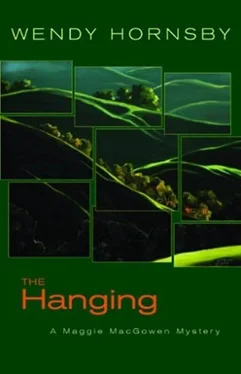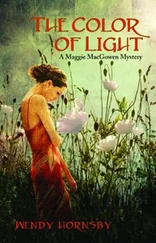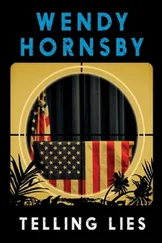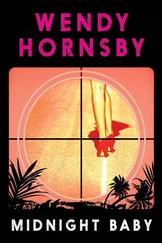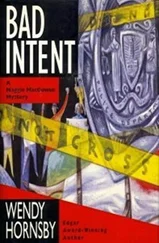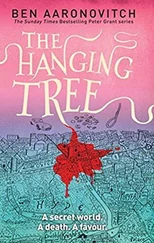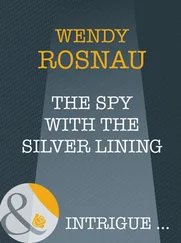“We live in a democracy, do we not?” Holloway said brightly, sounding false.
I glanced toward Kate and saw her wink at me. My dad, who taught physics at Cal, used to say that the college campus was still medieval in its structure: the faculty were like barons, linked to their serfs, the students, by a complex set of mutual obligations; the administration was the Vatican, external, and with an overblown notion of its authority. Democracy? Hardly. But when administrators got too full of themselves, now and then it helped to remind them that when a university student named Martin Luther rose up in protest he set the western world on its ear.
“Park?” Kate waited until he looked at her. “Are we agreed?”
He sighed, turned toward Hiram Chin, who so far had been a cipher in the meeting. I saw Chin nod, just the slightest forward movement of his head.
Holloway still hesitated, but in the end, he said, “Of course.” Glaring at Lew he continued, “The work , attributed to Mr. Miller, will be installed as a permanent fixture of our lobby as described in the original award proffer.”
“If I may,” Max said, addressing Holloway. “One more little thing.”
“Sir?” Holloway said through clenched teeth.
“The comment we heard here, questioning the authenticity of the work ascribed to Sly Miller, is scurrilous. If, after this meeting, anyone were to repeat that comment, either as gossip or as an assertion of fact, that act would be slander, and would be legally actionable.”
Max looked at everyone around the table in turn. “Is that clear?”
“My lips are sealed,” Lew said. “And yours, Park?”
He nodded. “Anything else, Counselor?”
“Not at the moment,” Max said, patting the breast pocket where two blue-jacketed legal notices waited, in case.
“Thank you.” Kate then turned to Lew. “Then we’re finished?”
“You betcha.” He gave Holloway the evil eye for good measure.
“Joan, all cleared up?”
“About Sly? Yes.”
Kate turned to Holloway. “Thank you for your time, Park.”
Everyone rose except Joan.
Half-risen in his seat, Holloway saw her once again thrumming the edges of her file, and froze, puzzled.
“Was there something else, Joan?” Holloway asked.
“There is,” she said.
She glanced at us as if making certain we were going. When Kate pointed at herself and raised a brow as if asking if she were needed, Joan shook her head and began taking papers out of the file and arranging them on the table in front of Holloway’s seat.
As I left, I heard Joan say to the academic vice president, “No need for you to stay, either, Hiram. I want a word with Park, alone.”
After the meeting, agreeing to skip lunch as we walked toward the student gallery to speak with Sly, my uncle watched me closely, as he had watched me for most of the last year, looking for emotional leaks.
“It comes and goes, Max,” I said in response to the unspoken question. “Good days and bad. But I’m all right.”
“Give it time, honey. It hasn’t even been a year. Just give it time.”
I looked away. Sometimes, if I was very busy, I might pass an entire hour without thinking about my husband, Mike. More and more, I found myself actually thinking about Mike rather than about my loss. And more often than not, lately, those memories made me happy.
“I’ve been meaning to ask you, Maggot,” Max said, using a family nickname. “And I know you’d never say, but how are you fixed? This temp job can’t be paying you much, and you have a daughter in college.”
I patted his hand. “I’m fine, Max. I have Mike’s LAPD pension and some savings, I still get royalties and residuals from a few of my old documentaries, the network gave me a good buyout, and there’s always the prospect that one day we’ll get my mother’s French estate through probate. So don’t you worry about me.”
“Worrying about you is what I do best,” he said as he opened the door of the student gallery in the campus arts complex and held it for me. “And Lord knows you’ve given me a fair ration of practice. But if you need-”
“I love you, Max.” I kissed his cheek on my way through the door. “And I’m fine.”
Sly, wearing his uniform (black T-shirt, black button-front Levis, black boots-he was trying for a three-day beard, but all he had produced was noticeable fuzz) was deep in conversation with a woman I did not recognize. He was pointing out something on the sculpture taking shape around a tall frame in the middle of the high-ceilinged room.
The woman was somewhere north of middle-aged, and though she was tiny and pretty, there was something about her carriage that conveyed authority. She listened to Sly with a focus that was so intense that it was clear she was enormously interested in what he was telling her.
As the door closed behind us, Max stopped to bat at something above his head. “A bird must have flown in with us.”
He was looking around for the bird so he missed the little smile that passed between Sly and the woman when they turned to see who had come in.
Eyes darting around the room, Max said, “Where is the damn thing?”
“It’s a dove,” the woman told him. “A shadow from the past.”
Max turned to her, his brows furrowed. She extended her hand.
“I’m Bobbie Cusato. And you are Max Duchamps. Sly told me about you. Lovely to meet you.”
“And you.” Max bowed slightly, a gesture left over from a recent visit to France. Mrs. Cusato was some years older than he, but he seemed quite taken with her. More interested in her, certainly, than he had been in Joan Givens.
I recognized her name. She was one of the local movers and shakers, a community activist and fund-raiser. If I had ever imagined her in my mind’s eye, I would have expected a matron dripping with jewels and stiff with haughtiness. She was anything but. Beautifully but simply dressed in well-cut woolen slacks and a deep red sweater, there was a sparkle in her eyes that held promise for a lively sense of humor; she had tucked a bright red hibiscus flower behind one ear.
“This is Maggie MacGowen,” Sly said, gesturing toward me with an upturned palm and a poise that would have made Miss Manners herself damn proud; my eyes welled up. “Maggie, Mrs. Cusato was on the award committee.”
“Maggie, I’ve heard so much about you,” she said, offering her hand. “We have a mutual friend in Kate Tejeda. And of course, I know you from your television programs.”
“Lovely to meet you, Mrs. Cusato,” I said.
“Oh, please, call me Bobbie.”
“So, Sly,” Max said, head thrown back, looking up at the sculpture that very nearly reached the ceiling. “This is the beast?”
“The beast,” Sly said, happily accepting the label.
“Sly was explaining his work to me,” Bobbie said. “Last time I saw it, it was a sketch and a model and a color wheel. I knew it would be wonderful, but this…” She gestured toward the sculpture, still hardly assembled. “Beyond, far beyond, anything I could imagine.”
I had to agree.
Sly, who had no known history of his own, had been enthralled by a California History class he took with Kate, and by the golden, rolling hills that are the scenic backdrop of the campus that became his haven. His piece would be a graceful, kinetic cascade of ceramic tiles formed to represent the textures, colors and shapes of the hills, all of it strung together by an invisible system of slender steel cables. Among the hills, he incorporated design motifs from the various phases of the region’s past, beginning at the top with images painted by the Chumash in local caves a thousand years ago, followed by abstracted bits of Baroque and Mission architectural elements from the Spanish epoch. From there, a spill of red, white and green, the colors of the Mexican flag, morphed into the blue, channeled waters of the California Aqueduct that became a ribbon winding among glazed aluminum grills representing the perfectly groomed and plowed fields of local commercial agriculture in the modern era.
Читать дальше
